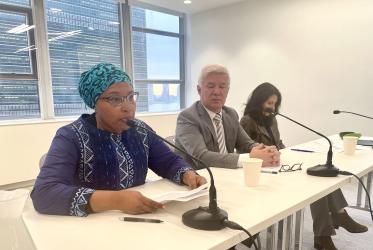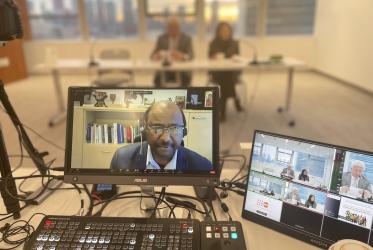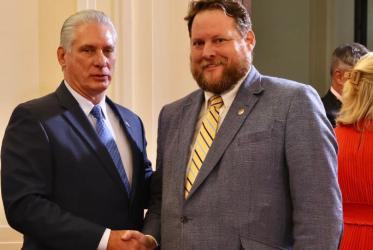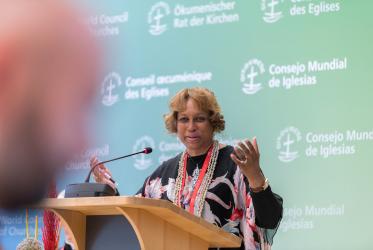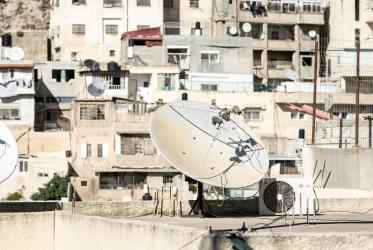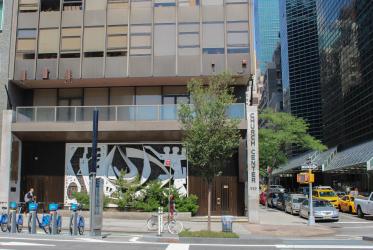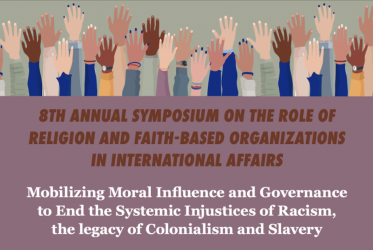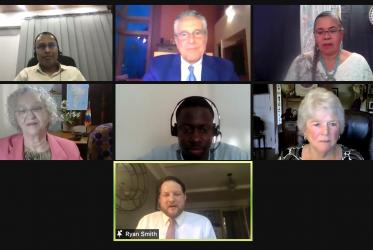Displaying 1 - 20 of 84
ACT Alliance general secretary: “equity is not negotiable”
26 September 2023
As UN assembly opens, prayers for children and young people
20 September 2023
WCC offers input to the UN New Agenda for Peace
13 April 2023
In New York City, the spirit of Thursdays in Black is thriving
06 October 2022
How racism and colonialism are exacerbating impacts of climate change
29 September 2021


